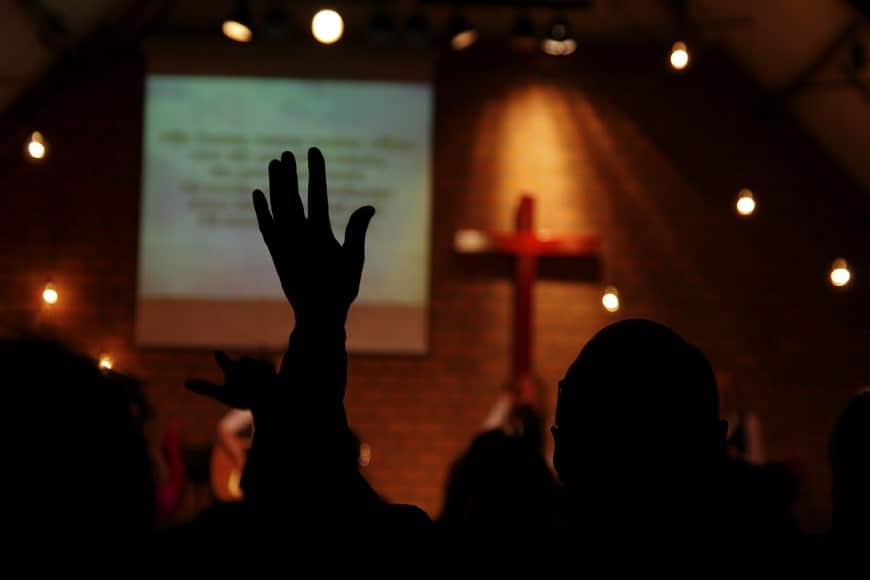Is Yours a “Yeah, We Can Handle This” Church?
As a seminary student, the influence of two professors changed the course of my life. Jack Miller, Professor of Practical Theology and Evangelism at Westminster Theological Seminary, was one of them. The other was Harvie Conn, Professor of Missions. Along with Tenth Presbyterian Church in Philadelphia, they led me to begin what is now Harvest USA. One day in 1983, Harvie said to our Missions class, “We’re going to talk about a different kind of mission field today. We’re going to talk about ‘unreached people’ and ‘hidden people.’”
Harvie explained that the largest ‘unreached people’ in our culture was the gay and lesbian community, at the time the fastest-growing people group in America. He talked about how their numbers, influence, and impact was only going to grow. Wow—how prophetic! It seemed that the organized church wanted nothing to do with this community and kept an arm’s-length attitude—basically, the church didn’t know what to do with “them.” Instead of a “we can handle this” approach to sexual strugglers, the church adopted a “we can’t handle this” mentality.
Harvie then defined an even larger ‘hidden people’ group. This group brought all the shame, baggage, unresolved conflicts, sexual temptations, struggles, and sin into their walk with Christ and into the church. But because the ethos in most churches was silence and an outlook of “we don’t talk about that around here,” many men and women sat in our pews paralyzed, isolated, and often in despair, not knowing how the gospel applied to their struggles.
Boy, the culture has changed a lot since then—and not for the better! The impact of both the gay movement, especially the “gay Christian” movement, and the availability of Internet pornography has deeply and severely impacted many men, women, teens, and families who sit in evangelical, conservative pews today. How could it not, when you realize that carrying around a cell phone or laptop is like having an adult bookstore right in your home or pocket. Saying “no” to looking at that is a challenge! You could take the truth of what Harvie said in that class and multiply it by one hundred to describe what is impacting people today.
So, reader, how is your church set up to deal redemptively with the mess of sex and sexuality in the lives of people today? And how are you going to declare the glory of sex as God intended it to be?
Think about it. Is yours a church where the hope and help of the gospel is readily available to the multitude who feel stuck, isolated, wounded, and defeated by sexual brokenness? What messages do your leadership give about the ability, not only of God, but of your church, to help with such problems? How are you conveying “Yeah, we can handle that around here,” so that people can get the gospel help they so need?
Many churches either don’t know what to do or convey a judgmental attitude when it comes to the struggles that men and women have with sex and sexuality. The church is often the last place these people feel they can be honest and genuine about sexual matters that are impacting their own hearts and lives. This simply ought not be!
Do you have a simplistic fairy tale view of the gospel when it comes to sexual brokenness? The gospel is powerful and effective, but it isn’t magical. We often fail to see struggles as an ongoing part of the Christian life, dispensing Bible verses without walking with people through their suffering. (Check out my post on the impact of the church’s silence in talking about sexuality, “Sex and the Silence of the Church: How It’s Crippling God’s People.”)
We must work hard to shape our churches into places of hope and help—places that readily seek to assist people and recognize their struggle with sin. But making our churches visible vehicles of truth and mercy in this area—well, it doesn’t come naturally. It must be intentional and calculated.
But it’s never too late! Every church has to begin somewhere. As we call others to faith and repentance and jump into the trenches with them, part of our own repentance as leaders may be admitting our oversimplification of deep spiritual issues and strongholds, as well as our hesitancy to get involved in the [messy] healing process of our people.
In my early days of reading the Bible as a new believer, I was struck by the amount of time, attention, and affection that Jesus had for the sexually broken and the sexual ‘outcasts’—those either labeled as such by others or who thought of themselves that way. Ask the Lord to give you that same heart for the broken and begin to think of ways your church can become unafraid and boldly willing to move into the scuffle of ministry. This is where we help the local church excel. The staff at Harvest USA stands ready to help! Take a look at our Partner Ministries program for ways we can assist your church community to get ministry to sexual strugglers started and keep it ongoing.
John Freeman
Founder
John is the founder of Harvest USA. He is a graduate of the University of Tennessee and Westminster Theological Seminary, PA. He is a ruling elder in the Presbyterian Church in America (PCA). John and his wife, Penny, have been married for more than 30 years and have three grown children. Their home is in the Philadelphia area.
More from John Freeman